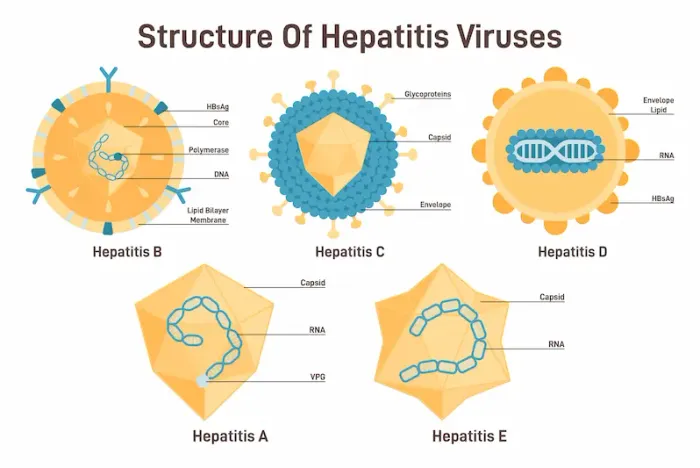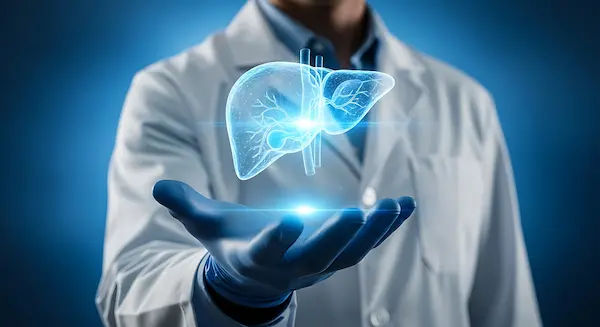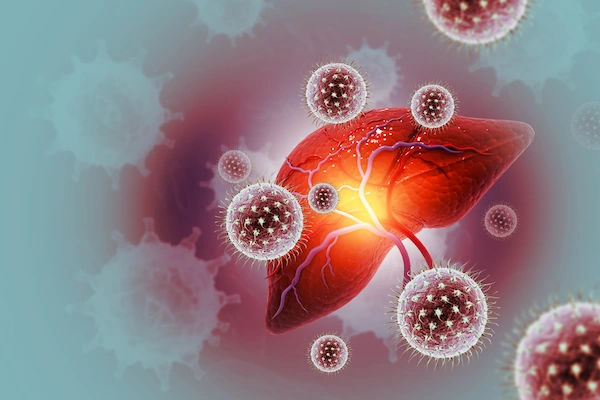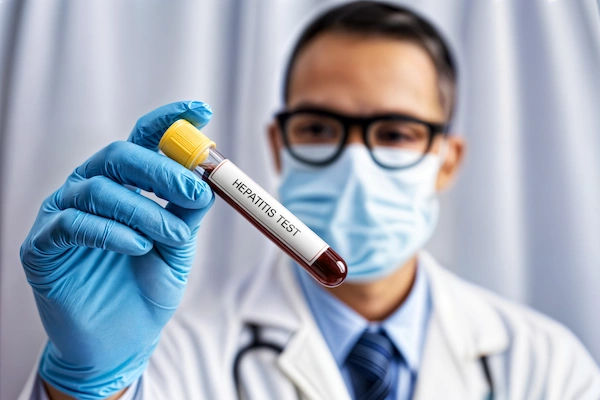Transmission of Hepatitis A to E
Learn about the transmission of Hepatitis A, B, C, D, and E, including how these viruses spread, risk factors, and ways to protect yourself through prevention and safe practices.

Written by Dr. J T Hema Pratima
Reviewed by Dr. Shaik Abdul Kalam MD (Physician)
Last updated on 13th Jan, 2026

Introduction
Hepatitis is a condition that causes inflammation of the liver, often due to viral infections. There are five main types of viral hepatitis: A, B, C, D, and E. Each type spreads differently, and knowing how they are transmitted can help you protect yourself and your loved ones.
In this article, we’ll explain how each type of hepatitis spreads, its symptoms, and ways to prevent infection.
How Do Different Types of Hepatitis Spread?
The different types of hepatitis can spread in the following ways:
1. Hepatitis A (HAV)
Transmission:
• Spreads through contaminated food or water (faecal-oral route).
• Common in areas with poor sanitation.
• Can also spread through close personal contact with an infected person.
Symptoms:
• Fatigue, nausea, stomach pain
• Jaundice (yellowing of skin and eyes)
• Fever, loss of appetite
Prevention:
• Wash hands thoroughly before eating and after using the restroom.
• Drink clean, filtered water.
• Get vaccinated (Hepatitis A vaccine is highly effective).
2. Hepatitis B (HBV)
Transmission:
• Spreads through blood, semen, or other body fluids.
• Can be passed from mother to baby during childbirth.
• Sharing needles, razors, or toothbrushes with an infected person.
• Unprotected sex with an infected partner.
Symptoms:
• Fatigue, joint pain
• Dark urine, jaundice
• Abdominal discomfort
Prevention:
• Get vaccinated (Hepatitis B vaccine is safe and effective).
• Avoid sharing personal items like razors or needles.
• Practice safe sex using condoms.
3. Hepatitis C (HCV)
Transmission:
• Mostly spreads through blood contact.
• Sharing needles or syringes (common in drug use).
• Less commonly through sexual contact.
• Rarely from mother to baby during childbirth.
Symptoms:
• Often no symptoms in early stages.
• Fatigue, nausea, jaundice (in chronic cases).
Prevention:
• Avoid sharing needles or personal items that may have blood on them.
• Get tested if you’ve had a blood transfusion before 1992 (when screening improved).
• No vaccine is available, but treatments can cure Hepatitis C.
4. Hepatitis D (HDV)
Transmission:
• Only affects people who already have Hepatitis B.
• Spreads through blood or sexual contact (similar to HBV).
Symptoms:
• Similar to Hepatitis B but often more severe.
• Fatigue, jaundice, abdominal pain.
Prevention:
• Since HDV needs HBV to survive, getting the Hepatitis B vaccine prevents both.
• Avoid risky behaviors like sharing needles or unprotected sex.
5. Hepatitis E (HEV)
Transmission:
• Spreads through contaminated water (faecal-oral route).
• Common in areas with poor sanitation.
Symptoms:
• Similar to Hepatitis A (jaundice, fatigue, nausea).
Prevention:
• Drink clean, boiled, or filtered water.
• Practice good hygiene, especially when traveling.
• No widely available vaccine yet (though one exists in some countries).
Consult a Hepatologist for the best advice
How Can You Protect Yourself?
To reduce your risk and stay protected from hepatitis, here are some important steps you can take:
1. Vaccination
• Hepatitis A & B vaccines are safe and effective.
• Children and high-risk adults should get vaccinated.
2. Hygiene & Sanitation
• Wash hands frequently with soap and water.
• Avoid eating raw or undercooked food in high-risk areas.
3. Safe Practices
• Use condoms to reduce sexual transmission risk.
• Never share needles, razors, or toothbrushes.
4. Regular Testing
• If you’re at risk (e.g., healthcare workers, people with multiple sexual partners), get tested.
When to See a Doctor?
If you experience:
• Persistent fatigue, nausea, or jaundice
• Dark urine or pale stools
• Unexplained weight loss
Early diagnosis can prevent complications like liver damage.
Final Thoughts
Hepatitis can be serious, but knowing how it spreads and taking preventive steps can keep you safe. Simple measures like vaccination, good hygiene, and safe practices go a long way in protecting your liver health.
Consult a Hepatologist for the best advice
Consult a Hepatologist for the best advice

Dr. Pavan Kumar Y M
Gastroenterology/gi Medicine Specialist
5 Years • MBBS, MD Medicine, DM Gastroenterology
Bengaluru
Apollo Medical Center, Marathahalli, Bengaluru

Dr. Pukhraj Singh Jeji
Gastroenterology/gi Medicine Specialist
13 Years • MBBS, MD ( Internal Medicine ), DM ( Gastroenterology ), Consultant - Gastroenterology
Bhubaneswar
Apollo Hospitals Old Sainik School Road, Bhubaneswar

Dr. Aakash Garg
Gastroenterology/gi Medicine Specialist
12 Years • MBBS, DNB (Medicine), DrNB (Gastroentrology).
Bilaspur
Apollo Hospitals Seepat Road, Bilaspur
(150+ Patients)

Dr. E Prabhakar Sastry
General Physician/ Internal Medicine Specialist
40 Years • MD(Internal Medicine)
Manikonda Jagir
Apollo Clinic, Manikonda, Manikonda Jagir
(150+ Patients)

Dr. Srinivasa Reddy
Hepatologist
12 Years • MBBS, MD (General Medicine), DM (Hepatology),ASGE
Hyderabad
Myra Liver & Gastro Care, Hyderabad
Consult a Hepatologist for the best advice

Dr. Pavan Kumar Y M
Gastroenterology/gi Medicine Specialist
5 Years • MBBS, MD Medicine, DM Gastroenterology
Bengaluru
Apollo Medical Center, Marathahalli, Bengaluru

Dr. Pukhraj Singh Jeji
Gastroenterology/gi Medicine Specialist
13 Years • MBBS, MD ( Internal Medicine ), DM ( Gastroenterology ), Consultant - Gastroenterology
Bhubaneswar
Apollo Hospitals Old Sainik School Road, Bhubaneswar

Dr. Aakash Garg
Gastroenterology/gi Medicine Specialist
12 Years • MBBS, DNB (Medicine), DrNB (Gastroentrology).
Bilaspur
Apollo Hospitals Seepat Road, Bilaspur
(150+ Patients)

Dr. E Prabhakar Sastry
General Physician/ Internal Medicine Specialist
40 Years • MD(Internal Medicine)
Manikonda Jagir
Apollo Clinic, Manikonda, Manikonda Jagir
(150+ Patients)

Dr. Srinivasa Reddy
Hepatologist
12 Years • MBBS, MD (General Medicine), DM (Hepatology),ASGE
Hyderabad
Myra Liver & Gastro Care, Hyderabad




.webp)